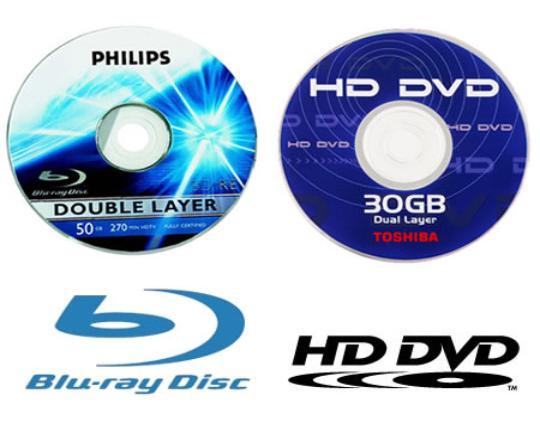
Blu-Ray vs. HD-DVD or Sony vs. Toshiba
Blue laser technology has been used with us since 2002. However, she did not have an easy start. From the very beginning, he fell victim to the absurd arguments put forward by various manufacturers. The first was Toshiba, which distanced itself from the Blu-Ray group, accusing it that the blue lasers needed to play these records were simply too expensive. However, this did not stop them from developing their own format for this laser (HD-DVD). Soon after, an even weirder discussion erupted over the question of whether it's better to create interactive elements on whiteboards in Java or Microsoft HDi.
The community began to ridicule the giants of the industry and their disputes. They couldn't afford it. Sony and Toshiba met to reach an agreement. Prototypes of both formats were ready. It's not too late to spare the millions of technological HD roulette lovers. In March 2005, newly elected Sony CEO Ryoji Chubachi stated that having two competing formats in the market would be very frustrating for customers and announced that he would try to merge the two technologies.
Negotiations, despite a promising start, ended in failure. Film studios began to choose the parties to the conflict. At first, Paramount, Universal, Warner Brothers, New Line, HBO, and Microsoft Xbox supported HDDVD. Blu-Ray was backed by Disney, Lionsgate, Mitsubishi, Dell, and PlayStation 3. Both sides won small victories, but the biggest battle was to take place at the 2008 Consumer Electronic Show (Las Vegas). However, at the last moment, Warner changed its mind and opted for Blu-Ray. The main ally of HD-DVD has betrayed. Instead of champagne corks, only soft sobs could be heard.
“I was with the Toshiba people when the press conference was canceled,” recalls T3 journalist Joe Minihane. “We were flying over the Grand Canyon in a helicopter when a Toshiba representative approached us and said that the planned conference would not take place. He was very calm and emotionless, like a sheep going to the slaughter."
In her speech, HD-DVD crew member Jody Sally tried to explain the situation. She admitted that it was a very difficult moment for them, given the fact that in the morning they had to share their successes with the world. However, in the same speech, she stated that the company will definitely not give up.
At that point, HD-DVD might not have been finished yet, but the nursing home door to unfortunate formats was flung open for him to play checkers. Sony didn't even wait for Toshiba to die. They carved up their market as quickly as possible.
People at the Blu-Ray booth claimed they were unaware of Warner Brothers' decision. It was as much of a surprise to them as it was to HD-DVD. Perhaps only the effects were different.
Paradoxically, but most of all, this solution was liked by consumers. After all, it was clear in which format to invest. The victory of the Blues brought them relief and peace, and Sony a whole bunch of money.
The HD-DVD stomped and screamed, but no one cared. Every day there were new promotions and price cuts. However, the other partners quickly fled the sinking ship. Just five weeks after the memorable CES show, Toshiba decided to shut down its format production line. The war was lost. After a meager attempt to reclaim the popularity of the DVD format, Toshiba was forced to recognize the superiority of its opponent and began releasing Blu-Ray players. For Sony, which was forced to release VHS 20 years ago, this must have been an extremely satisfying moment.
Read article:
